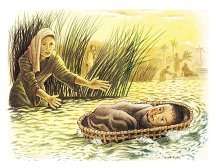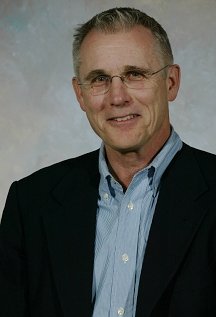Around the State
• Three Tarrant Association churches are teaming up to celebrate their adoption of the Celebrating Grace Hymnal with a hymnody workshop and joint congregational concert. Gambrell Street and Agape churches in Fort Worth and Ash Creek Church in Azle will hold a hymnody workshop at Gambrell Street May 22 from 9:30 a.m to 2:30 p.m. The workshop will feature Terry York of Truett Seminary, David Music of Baylor University, Stan Moore of the B.H. Carroll Theological Institute and Mark Edwards, vice president and worship resource manager for the hymnal. Topics will include “Hymns for a Lifetime of Worship and De-votion,” “History of Baptist Hymnody” and “Trends in Hymnody.” Several rounds of singing from the host churches will be interspersed through-out the day. The weekend will culminate with a joint worship service at Agape at 6 p.m. May 23. Both events are free, but people wishing to participate in the Saturday lunch for $6 need to make reservations at (817) 926-1785.
|
Nursing student Andre Brown checks the pupils of a classmate during a skills lab in the Wayland Baptist University’s School of Nursing. Brown, a 30-year-old Army medic from San Diego, has hopes of becoming a nurse anesthetist in military hospitals. After being at Fort Sam Houston for two years, he learned the Army would help put him through nursing school in return for his long-term commitment. Wayland’s program, format and location were most convenient for Brown, and he started classes in the fall toward a bachelors of science degree in nursing.
|
• Dillon International will hold a free adoption information meeting at 6 p.m. May 27 at the Buckner Children’s Home campus in Dallas. A representative will give an overview of adoption from China, Korea, Haiti, India, Hong Kong and Nepal, plus new opportunities in Ghana. A domestic adoption program for Texas families and adoption programs in Russia, Ethiopia and Honduras, available through an affiliation with Buckner, also will be discussed. For more information or a reservation to attend the meeting, call (214) 319-3426.
• The annual Hispanic Preaching Conference at Baptist University of the Américas has been renamed Congreso Hispano de Predicacion Rudy Sanchez. Rudy Sanchez died in February 2009 after a ministry that included pastorates in Corpus Christi, Dallas, Fort Worth and Houston. He was the first Hispanic elected chair of the Executive Board of the Baptist General Convention of Texas.
• The Logsdon School of Theology at Hardin-Simmons University has named René Maciel, president of the Baptist University of the Américas, and David Morgan, pastor of Trinity Church in Harker Heights, as distinguished alumni.
• Kelly Duguay has been selected to serve as program director of Baptist Child & Family Services’ extended-care program for its international children’s services division. The international children’s services division is a program of the U.S. Office of Refugee Resettlement. The program provides shelter and care to unaccompanied children from foreign countries while the federal government determines the appropriate next steps toward reconnecting youth with their families.
• Sue Kavli has been named Dallas Baptist University’s faculty member of the year. She has taught in the College of Business and Gary Cook Graduate School of Leadership since 2005, serving as a professor of research and leadership. She and her husband, Steve, are members of First Church in Lewisville.
• Virginia Burroughs, Maridell Fryar and Royston Crane Jr. have been named to Hardin-Simmons University’s Hall of Leaders.
• Rosa Esparza, a member of the San Marcos Baptist Academy laundry staff, was honored for 45 years of service.
• Two Howard Payne University students were honored at the National Christian College Forensics Association’s national championships. Freshman Charity Chambers was the most decorated novice speaker at the tournament. She was national champion in informative speaking and also the first place novice parliamentary debate speaker. For the total of her efforts, she was named individual novice sweepstakes champion. Adam Hardy, a sophomore, was named national champion in open division program oral interpretation.
• Joseph Perez, vice president of the pastoral services department for Valley Baptist Health System in Harlingen, received the outstanding local leadership award from the Association of Professional Chaplains.
• Cherry Sorrels, transportation coordinator at East Texas Baptist University, received the Leading By Example Award at the school’s Women of Distinction luncheon.
• Wayland Baptist University packed a time capsule with blue jeans, flip flops, a sling backpack, an MP3 player, current magazines, a 44-cent postage stamp and numerous other items representing the current culture. The last thing added to the capsule was a list of predictions for the future and current challenges. The capsule was buried outside the Gates Hall porch and is set to be opened in 2058.
Anniversaries
• North Park Church in Abilene, 75th, May 20-23. Revival services will take place May 20-22, with former staff members Randy Evans and Jonathan Jones preaching and leading worship. A celebration service will be held Sunday morning. A hamburger supper will be held at 5:30 p.m. Saturday and a barbecue lunch will follow Sunday’s service. A service of music and memories will begin at 1:30 p.m. Sunday. To make a reservation for the meals, call (325) 672-5300. Louis Johnson is pastor.
• Mike Woodard, 25th, at Southwest Park Church in Abilene, May 23. He began his service at the church as associate pastor and has been pastor the last 22 years. A reception will be held in his honor at 5 p.m., followed by a recognition service at 6 p.m.
• Phil Tilden, 70th, in ministry, May 25. He was the founding pastor of Sunrise Church in Kerrville, and the church will hold a recognition service in his honor May 30 at 6 p.m. A reception will follow. He is pastor of First Christian Church in Fredericksburg.
Retiring
• Nathan Booth, as pastor of Pidcoke Church in Gatesville, March 7. He was in ministry 60 years. A graduate of Howard Payne University, he was pastor of several churches in Central and South Texas. He and his wife, Joyce, served as missionaries in Guadalajara, Mexico, nine years. While serving in Mexico, they founded the Spanish Language School and the Lincoln School, where missionaries and their children study before going to the countries where they will serve. He was pastor of the Gatesville church more than eight years, and they continue to live there.
Deaths
• Travis Crutchfield Jr., 56, April 15 in Austin. A graduate of Southwestern Seminary, he was pastor of several Texas churches. For several years, he was nursing home minister for Abilene Association. He was a member of First Church in Buffalo Gap. He was preceded in death by his father, Travis Crutchfield. He is survived by his wife of 16 years, Linda; brother, Stanley; sister, Karen Blazi; and mother, Doris Crutchfield.
• J.D. Bowman, 86, May 2 in Lancaster. A retiree from the Dallas County clerk’s office, he also was a bivocational music minister at First Church in Richardson, Park Street Church in Greenville and Pleasant Run Church in Lancaster. He helped start DeSoto Church in DeSoto as music minister there. He also served First Church in Hutchins as minister of education. He was a member of First Church in Lancaster. He was preceded in death by his son, Reggie; and brothers, T.C. and Allen. He is survived by his wife of 68 years, Virginia; sons Rodney, Ernie and Terry; brother, Oral; 13 grandchildren; and 23 great-grandchildren.
Event
• J. Gordon Henry will conduct a prayer seminar at Windsor Park Church in DeSoto May 16 from 9:30 a.m. to 4:30 p.m. Topics will include how to establish prayer as a daily priority; how to organize prayer in a biblical pattern; how to worship, praise, confess and give thanks; and how to pray for one’s self and others. Chris Seidlitz is pastor.
Ordained
• Terry Shirley, Harvey Manning, Keith Rhone and Roy May as deacons at Central Church in Crockett.
Revivals
• West End Church, Freeport; May 9-11; evangelist, Homer Martinez; pastor, Barry Foster.
• First Church, Bronte; May 9-12; evangelist, Robert Barge; music, Jeff Gore; pastor, Corey Cornutt.
• Velasco Church, Freeport; May 21-23; evangelist, Barry Creamer; pastor, Nathan Otto.

















